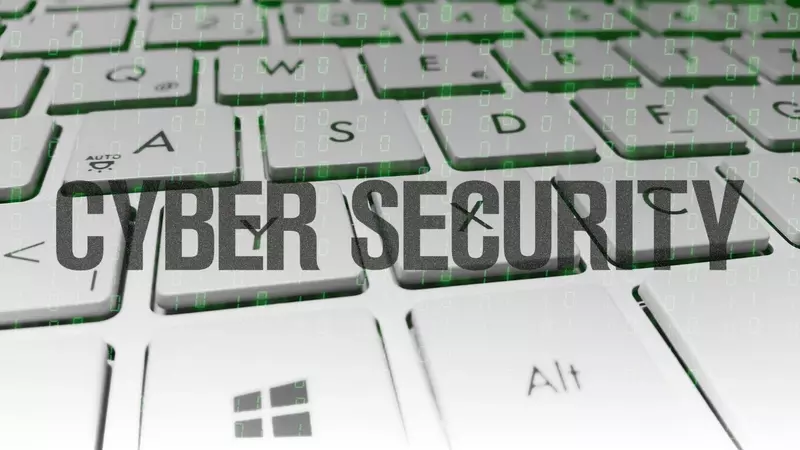Healthcare data breaches increased by 55% in 2020 compared to 2019. It also carried a 10.5% increase in the average cost of data breaches. Each breached record rose by 16.3%, from $429 to $499.
Be more vigilant these days since breaches are becoming more common. If you aren’t paying attention before, shift your focus to healthcare cybersecurity now.
The cost of a data breach isn’t the only issue. You’ll also face penalties, loss of credibility, and backlash from the community.
To prevent these, strengthen your security measures. Here are some IT security tips to keep your data safe.
Table of Contents
Control Access to Computers and Network
One of your first lines of cybersecurity defense is a password. However, the password is only half of the equation. It comes with a username as well.
Together, the password and the username are a form of verification. These are part of an access control system, giving rights to each user.
Control each user’s access depending on their level and role. For example, a higher employee gets more rights and access a greater set of data. Set file access permissions to determine how much each employee can access.
It’s also best to control access to the device itself. No matter how strong your passwords, file permission, and access control are, data and information are at risk if a computer or any device disappears.
You can prevent lost or stolen devices through locked rooms, movement restrictions, and so on. Secure your hard drive since they’re easy to rip out and hide.
Practice Good Computer Usage Habits
Anyone using a computer must be aware of how they use it. Not all data breaches or leaks are due to hacking and malware. Sometimes, it’s because of poor usage habits.
Like we said above, passwords are one of the first lines of defense against data breaches. With that in mind, make sure everyone uses a strong password. It should be something brute force attacks can’t easily guess.
Keep the computers and devices clean. They shouldn’t have unrelated software or apps to your practice. Games, messaging apps, and such don’t have a place in a professional setting.
Apart from those, update your software regularly as well. Whenever an update becomes available for your operating system, healthcare management system, and any other software, install it right away.
Updates come with bug and security fixes. They patch vulnerabilities, making your computer or software more secure.
Ensure Staff Has Proper Knowledge and Training
Did you know that the biggest threat to healthcare cybersecurity is the employees? A mix of human error and negligence often causes data breaches and leaks.
Employees might misplace a device, forget their passwords, download malware, and so on. Forgetful employees might even write down their passwords on a post-it note next to their computer, leaving it for everyone to see. They might also leave their computers unattended or fall to a phishing scam in their email.
Educate them about the security risks they’re facing. The healthcare sector is a gold mine of information, making it a juicy target. Each staff must do their duty to protect data.
Hold training sessions to let them know how to use your system the right way. All employees must be aware of the things they should and shouldn’t do regarding cybersecurity. Of course, they should be aware of the consequences as well.
Perform Risk Assessment Regularly
Cybersecurity is an ongoing commitment. New threats and vulnerabilities are always rising, and employees can become complacent. It’s why a good IT security team is essential to every business.
Perform regular risk assessments. It helps find flaws and shortcomings in your organization’s security, employee education, and all other areas.
Be proactive in finding your weak points before outsiders exploit them. It allows you to better prevent data breaches. It’s especially important since hackers are constantly updating their tools and skills.
A part of your risk assessment should identify risks and mitigate them. When you find gaps in your security, implement a strategy to remediate them.
Use the results to evaluate your security partners and processes. Through this, you can cut unnecessary control measures and create accurate forecasts about your needs.
Another good reason to do it often is to ensure you’re complying with regulations. As a healthcare provider, you have a lot of data and information to protect. Government bodies have to make sure you’re not taking this responsibility lightly.
Implement Strong Encryption Methods
To better comply with HIPAA regulations, you must encrypt your data. Whether they’re at rest or in transit, encryption safeguards your data from outsiders.
Even if cybercriminals were to gain access to the data, encryption ensures they won’t be able to read it anyway. They need a “key” to decipher the information.
This key is only available to authorized parties. Without it, the data is only a scrambled mess, meaning hackers can’t get anything useful from your system even if they successfully breach it.
Only use devices with encryption support. They’re not even that expensive since they’re much cheaper than the average cost of a data breach.
There’s no specific regulation about encryption, but it’s a strong recommendation. HIPAA leaves it up to you to determine the best data encryption method for your medical facility.
For peace of mind, get a specialized IT team like Orbissolutionsinc.com to take care of encryption. It’s a complicated subject that’s best left to professionals.
Take Healthcare Cybersecurity Seriously
Healthcare cybersecurity isn’t something you can be indifferent about. Considering your patients’ information are at stake, you’re dealing with a lot of threats daily.
Create a security culture in your company. After all, each of your employees can contribute to protecting your data.
Are you looking for more ways to protect your business? For more information, feel free to look at our other posts today.
Read Also: Two Ways to Boost MacBook’s Cybersecurity

